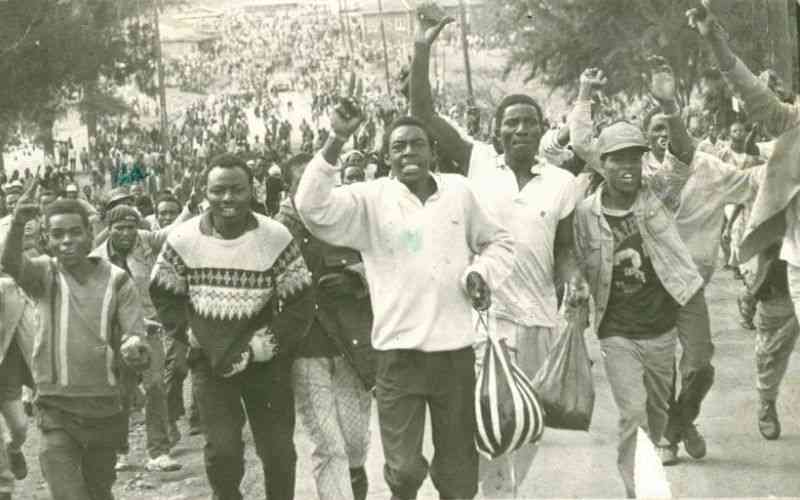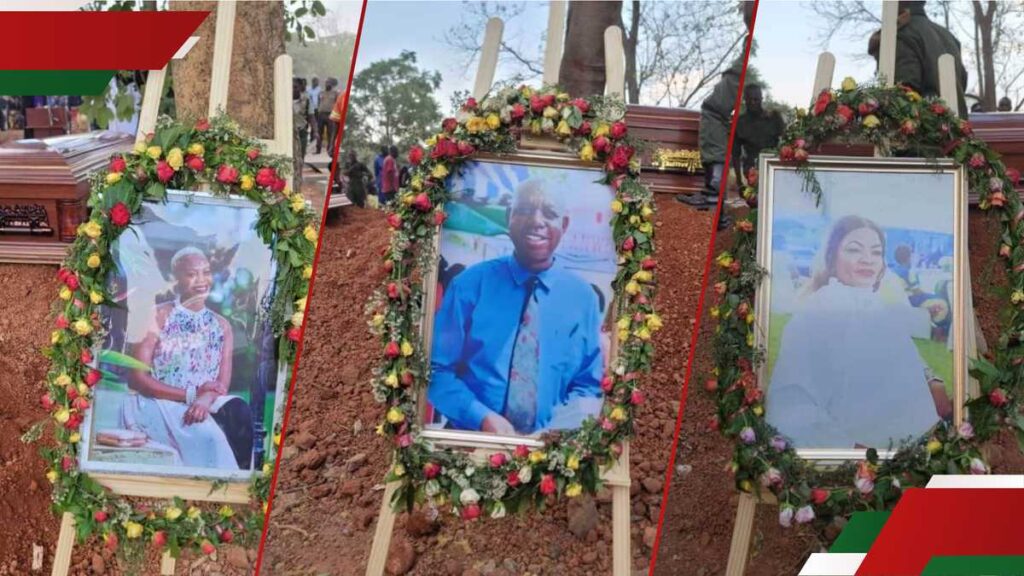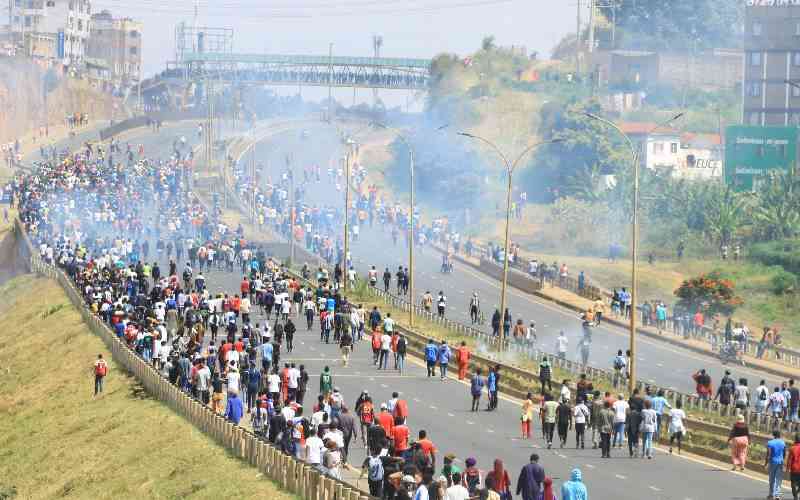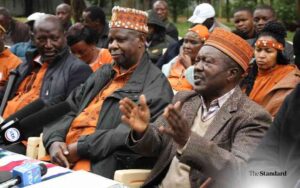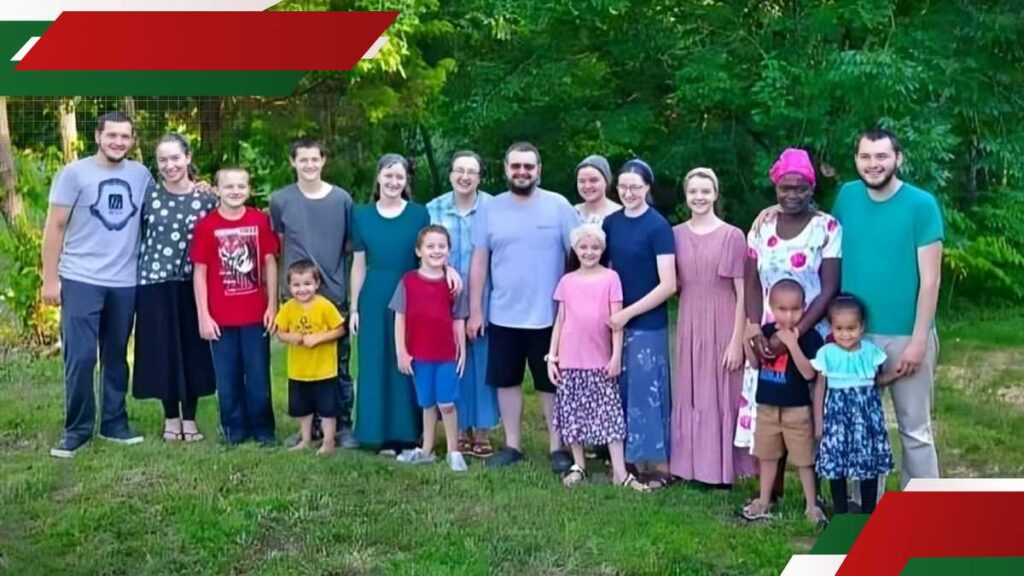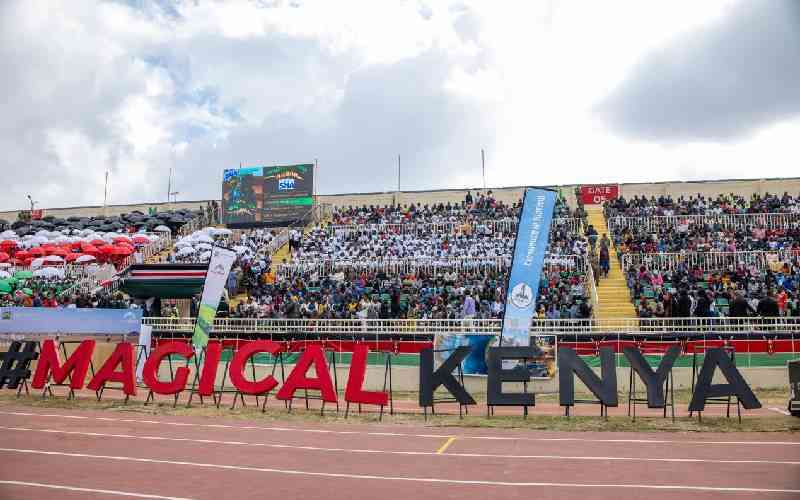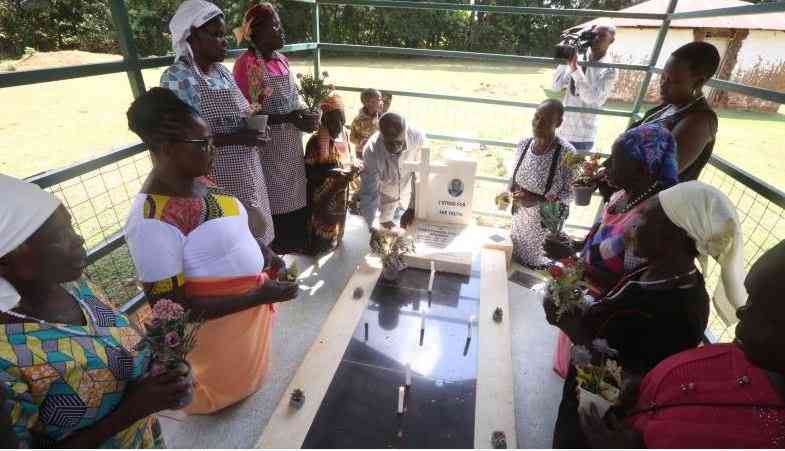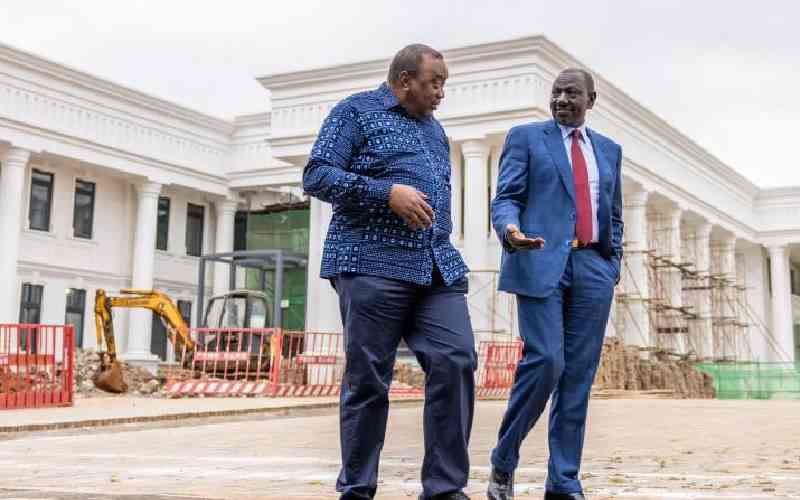On July 7, 1990, Kenyans took to the streets in a bold rejection of state repression, demanding the democratic space they had long yearned for.
The day, known as Saba Saba, became a symbol of defiance against the iron-fist rule of President Daniel Moi and marked a turning point in the country’s political history.
Kenneth Matiba, Charles Rubia, Njeru Gathangu, George Anyona and Raila Odinga led the movement, accusing Moi of clinging to power and denying Kenyans their right to choose leaders in a multiparty system.
The leaders announced plans on June 6, 1990, to hold a Kamukunji public meeting at Nairobi’s Kamukunji Grounds on July 7 to demand political pluralism.
The government, determined to crush dissent, banned the meeting on July 4.
Matiba and Rubia were arrested, preventing them from joining the protests. Lawyer John Khaminwa was detained after attempting to visit the detained leaders while human rights lawyers Gitobu Imanyara and Gibson Kamau Kuria were also arrested in the regime’s sweep against pro-democracy voices.
Despite the crackdowns, the protests lit a flame that could not be extinguished. On December 2, 1991, under mounting pressure, Moi capitulated and reinstated multiparty politics.
Within months, at least 19 new political parties were registered, reshaping the country’s democratic landscape.
In honour of the initial call for freedom, a Saba Saba movement emerged, spawning monthly protests known as Nane Nane, Tisa Tisa and Kumi Kumi.
Yet Saba Saba remained the most potent symbol of the struggle and represented what many called the Second Liberation, a continued fight for a truly democratic state.
Thirty-five years later, the streets once again echo with chants for justice as a new generation led by Gen Z reclaims Saba Saba to demand accountability from those in power.
Today’s protests call out poor governance, human rights violations and systemic corruption, accusing leaders of ignoring the struggles of ordinary Kenyans.
As Kenyans march today, Saba Saba remains more than a date. It is a reminder that freedom is not handed down. It is claimed, guarded and renewed by every generation that refuses to forget.
Stay informed. Subscribe to our newsletter








